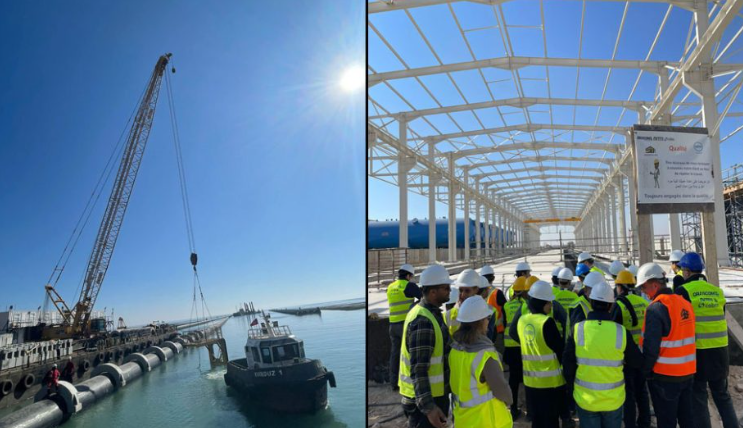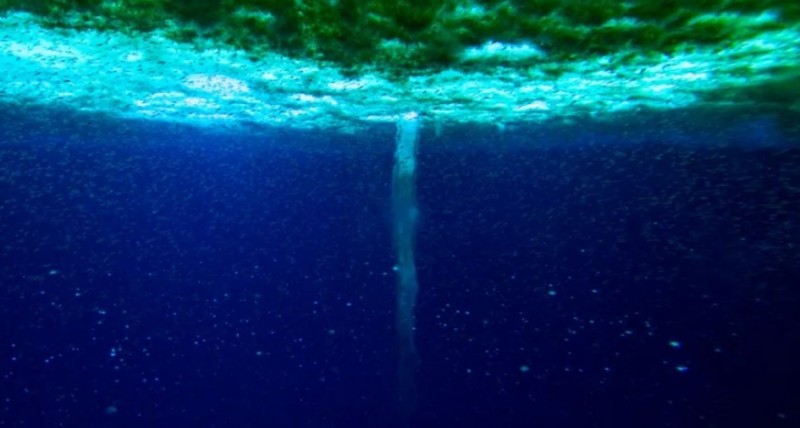As the COP29 climate negotiations in Baku enter their final week, the head of UN Climate called on negotiators Monday to « stop the theatrics, » get to work, and focus on drafting a new financial agreement to compensate countries for climate-related damages and support a transition to clean energy.
« We can’t lose sight of the forest for the trees, » said Simon Stiell, urging delegates to resolve the « less contentious issues » early this week, leaving sufficient time for critical political decisions.
COP29, which opened last Monday in the Azerbaijani capital, aims to secure an agreement on increased financing to address the worsening impacts of global warming.
Wasted Time
Despite progress on standards paving the way for a UN-governed carbon market, discussions on climate finance remain slow and contentious, with delegations entrenched in their positions instead of seeking common ground.
« Bluffing, brinkmanship, and premeditated playbooks » are wasting precious time and eroding the goodwill needed for an ambitious outcome, warned Stiell, Executive Secretary of the United Nations Framework Convention on Climate Change (UNFCCC), which convenes the annual COP meetings.
The stakes are too high for a « you-first epidemic, » where stakeholder groups refuse to move on one issue until others make concessions elsewhere, he said. Progress requires parties to work simultaneously, inching closer to common ground.
A Call for Leadership
Stiell’s appeal follows similar concerns expressed by UN Secretary-General António Guterres about the state of COP29 negotiations. Guterres emphasized the need for an ambitious climate finance target that meets the challenges faced by developing nations.
Speaking to reporters in Rio on Sunday ahead of the G20 summit, Guterres stated, « The time has come for the world’s largest economies and biggest greenhouse gas emitters to lead by example. Failure is not an option. »
« Nothing About Us Without Us! »
Beyond negotiations, other high-level meetings and events at COP29 have addressed a wide range of issues, from the intersection of climate and health to human development and education.
Children and youth made their voices heard during several vibrant and well-attended events, calling for protection against the effects of climate change, actions to prevent further environmental destruction, and efforts to preserve nature. They urged policymakers to include them in climate negotiations and to convene a separate UN climate conference dedicated solely to children.
Children Bearing the Brunt
According to UNICEF, climate change affects the well-being of one billion children—half the world’s child population. Air pollution, infectious diseases, environmental degradation, and extreme weather events compromise children’s health, hinder their education, and deprive them of the nutrition they need to grow and thrive.
During heatwaves, young children face a high risk of dehydration as their bodies struggle to regulate temperature. Floods and droughts impoverish families, leaving children to bear the consequences.
“Flooding forces schools to close in Liberia, and children miss out on their education,” said Juanita Tamba of the World Association of Girl Guides and Girl Scouts, the world’s largest voluntary movement for empowering girls and young women.
“And during the dry season, we walk long distances to fetch water, and girls often face violence when trying to access it,” she told UN News.
UNICEF estimates that climate-related disasters cause about 40 million children to miss school each year, a figure that is steadily rising.
Voices from the Frontlines
Zunaira from Pakistan, one of the youngest participants at COP29, is attending with support from UNICEF.
“When there are floods in my country, resources become limited, and there isn’t enough for everyone. Children, especially girls, are the most affected,” Zunaira told UN News.
At a UNICEF press conference on youth-led climate action, Rasul from Azerbaijan highlighted the dangers facing the Caspian Sea.
“Due to rising temperatures and prolonged heatwaves, the water level in this incredible body of water is dropping,” he said, noting that the shrinking Caspian Sea already impacts Azerbaijan’s population, which is also suffering from rising temperatures. “Summers and winters in Azerbaijan are getting warmer,” Rasul added.
« The Future Needs a Voice! »
Catarina, a 16-year-old environmental activist from Salvador, Brazil, a city located on the Atlantic Ocean, also shared her experiences. A passionate surfer since childhood, she said:
« When I was nine years old, I felt the ocean warming. As a surfer, I’m constantly in the ocean. I realized something was wrong when the water was much hotter than usual in the areas I frequented. Then, I noticed coral reefs covered in white spots – coral bleaching, something I had never seen before, » she shared.
Despite her young age, Catarina is an experienced climate activist. At the age of 12, she joined other children to file a complaint with the UN Committee on the Rights of the Child to protest government inaction on the climate crisis.
« It was the first time children filed a global complaint through a UN mechanism. We denounced five countries, and as a result, the UN officially recognized that children’s rights were being affected by the lack of climate action, » Catarina said.
In her heartfelt speech, she emphasized: « Children have things to say, and we know how to say them. We need space… We need a COP for children, now! »
Catarina fears that by the time she reaches an influential position, it may be too late to implement meaningful changes.
« Effective actions must be taken now. That’s why children need to be included in the decision-making process. If we are the future, then that future must have a voice, » she concluded.
Time to Act
UNICEF Executive Director Catherine Russell echoed Catarina’s sentiments earlier this month, stating: « At COP29 and through Nationally Determined Contributions, governments must prioritize children’s rights… Children must be included in the solutions, and world leaders must make health, education, water, and sanitation systems more resilient to the impacts of climate change. It’s time to act. »
Under the Paris Agreement, countries are required to submit updated climate action plans, or NDCs, next year at COP30.
In this context, UNICEF warns that less than half of the current plans are child- or youth-friendly, and only 3% have been developed through participatory processes involving children.
Payton Esau, 16, from Canada, brought a manifesto to the climate conference, signed by 800 of her peers.
« We demand that governments communicate in a language young people can understand, so we know what measures are being taken to fight climate change. Governments must act without delay to keep global warming below 1.5 degrees Celsius, » Payton told UN News.
Source: Nations Unies




